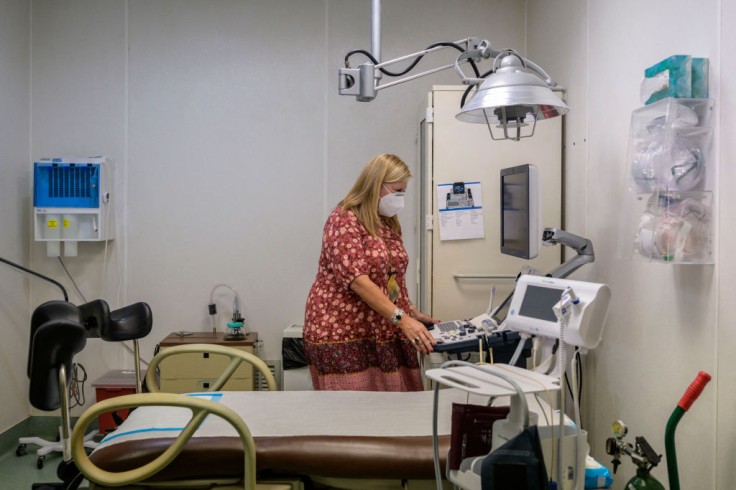
In the aftermath of the landmark Roe v. Wade overturn, individuals facing pregnancies in the United States are thrust into a pivotal moment, grappling with the profound implications of new and increasingly stringent state abortion laws.
This unfolding scenario has given rise to a palpable surge in demand for early ultrasounds and genetic screenings as patients navigate a maze of legal constraints, driven by a rising urgency to make crucial decisions before state-imposed deadlines.
Ticking Clocks under State Abortion Laws Early Ultrasound Detection
As states across the nation tighten their grip on abortion laws, individuals find themselves in the throes of complex decisions, acutely aware of ticking clocks dictated by gestational milestones.
Roughly half of the states have embraced restrictive abortion measures, leaving those in states like Utah and North Carolina, where abortion is prohibited after the 18-week and 12-week marks, respectively, with limited options for follow-up diagnostic tests.
The ticking clock becomes a defining element, pushing patients to hastily seek early ultrasounds to gather crucial information before state-imposed cutoffs, underscoring the urgency woven into the fabric of state abortion laws.
Amidst the escalating reliance on early ultrasounds, healthcare professionals voice concerns about the completeness of the information these screenings provide.
While the conventional 20-week ultrasound, often referred to as the "anatomy scan," offers a comprehensive examination, an increasing number of patients opt for ultrasounds at 10 to 13 weeks to align with stringent state laws.
However, experts caution that the limitations of early ultrasounds may lead to decisions made with incomplete information, intensifying the urgency inherent in the intricate web of state abortion laws.
The delicate balance between legal constraints and informed choices becomes a focal point as individuals navigate this evolving landscape.
Read Also: Clean Air Revolution: Moms Clean Air Force Summit Echoes EPA's Bold Standards for Children's Health
Genetic Screenings Amidst Regulatory Uncertainties
In the realm of genetic screenings, also known as "non-invasive prenatal tests," concerns about accuracy persist, prompting regulatory intervention.
The FDA is poised to release a regulatory framework in April, recognizing the need for oversight in the face of evolving medical technologies.
Healthcare providers stress the significance of diagnostic tests like amniocentesis and CVS, offering more certainty than the uncertainties associated with genetic screenings.
Against the backdrop of state abortion laws, the lack of diagnostic assurance heightens the urgency faced by individuals seeking reproductive choices.
This uncertainty, coupled with legal constraints, transforms the decision-making process into a delicate dance between the desire for information and the constraints imposed by the evolving legal landscape.
As state abortion bans tighten their grip, personal narratives emerge, shedding light on the profound challenges within the existing legal landscape.
The experiences of individuals like Hannah from Tennessee, who faced a strict abortion ban, become emblematic of the struggles intertwined with the pursuit of reproductive choices.
Hannah's journey, from obtaining a firm diagnosis from an ultrasound at 18 weeks gestation to navigating multiple states to find a clinic that aligned with her decision, underscores the tangible impact of state abortion laws on individuals making deeply personal choices.
The palpable urgency driven by state abortion laws is reshaping the landscape of reproductive healthcare decisions, permeating the intricate fabric of personal choices.
The reliance on early ultrasounds and genetic screenings, while a pragmatic response to legal constraints, introduces complexities and uncertainties into an already emotionally charged process.
As the nation grapples with this evolving landscape, the intersection of healthcare, law, and personal choice remains at the forefront, emphasizing the need for nuanced discussions around the implications of state abortion laws on reproductive rights.